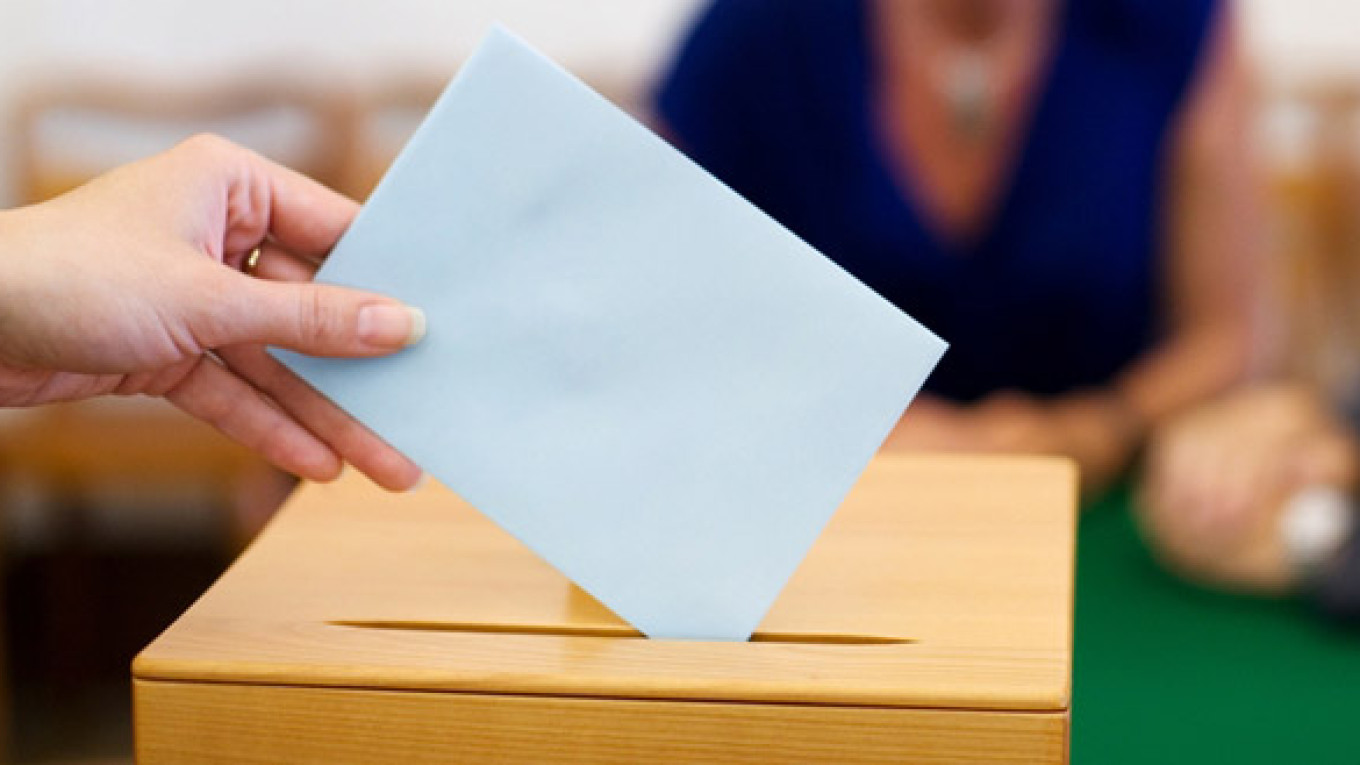An all-time record 63 parties will compete in the upcoming regional elections next month, but pundits and opposition candidates say undesirables have been purged from the lists.
"The intrigue is mostly about the turnout and runners-up in the gubernatorial polls," regional analyst Alexei Titkov of the Higher School of Economics said Thursday.
"If less than 30 percent of voters turn out, it may finally trigger the long-awaited public discussion about there being something not quite right about our elections," Titkov said by telephone.
On Wednesday, candidate registration closed for the more than 5,800 local elections that will take place across 84 of 85 Russian provinces on Sept. 14, according to the Central Election Commission.
Thirty governor seats are up for grabs, from St. Petersburg to the far eastern Primorye region, and 14 regional legislatures will be re-elected, including in Moscow.
But not a single incumbent, Kremlin-endorsed governor risks defeat, Titkov said — mostly because electoral authorities have banned all dangerous rivals from the race.
This includes popular opposition figure Oksana Dmitriyeva in St. Petersburg, Russia's one-time vice president Alexander Rutskoi in the Kursk region and former regional prime minister Rail Sarbayev in the republic of Bashkortostan.
In Moscow, no candidates endorsed by opposition whistleblower Alexei Navalny — a runner-up in the 2013 mayoral vote — made it to the ballots.
The unsurmountable obstacle in most cases was a rule obliging independents to collect signatures in their support in order to be allowed to stand.
Signatures collected by opposition candidates are routinely declared void on technicalities as innocuous as shortening "street" to "st." or "2014" to "'14."
Electoral authorities ruled that no opposition figures in Moscow — where 600,000 voted for Navalny in 2013 — managed to collect the required 5,500 signatures in support of their bid.
That task was, however, aced by a handful of public unknowns, including a 26-year-old handyman and a funeral home owner who reported official spending on the campaign of 3,500 rubles ($97).
"Those who wanted to run in the vote collected the signatures. For those who didn't want to, it was just a PR exercise,"? Central Election Commission deputy head Leonid Ivlev was cited by Vz.ru as saying Wednesday.
The purging of independents de-facto negates President Vladimir Putin's liberalization of the previously ultra-tight electoral legislation in the wake of anti-Kremlin protests that broke out in late 2011.
The number of officially registered political parties jumped from seven in 2011 to the current 77 as part of the reform.
But most of them are spoilers or "dwarf parties" with no public clout, while the serious "non-systemic opposition" struggles for official recognition, experts say.
The parties of two leaders of the anti-Putin protests — Navalny and recently jailed leftist leader Sergei Udaltsov — have both repeatedly been denied registration since 2011.
"The elections are a sham, and they know it," said Nikolai Lyaskin, an affiliate of Navalny who was denied a place on the ballot in the Moscow vote.
"They are afraid not just of opposition candidates, but of anyone the authorities don't control," Lyaskin told The Moscow Times.
This does not mean the campaign will be entirely dull, however: In Moscow, for example, the candidates include 23-year-old housewife Barbara Babich, known exclusively for risque photos highlighting her ample bosom and social networking posts about anal sex and "getting f---ing wasted."
Babich declined a request for interview in time for publication.
Contact the author at a.eremenko@imedia.ru


